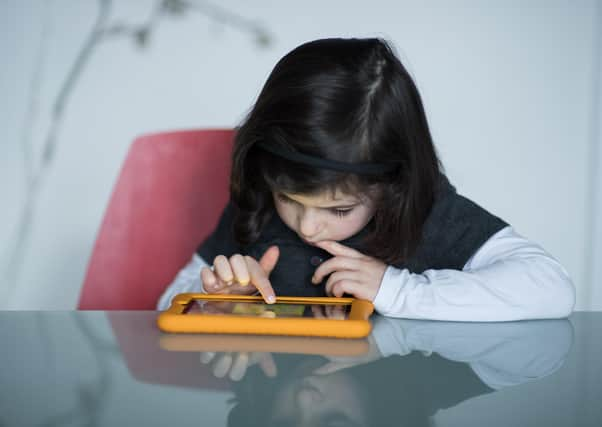How having a mobile phone can save your life – Karyn McCluskey


After years of trying to wean my teenager and me off a general addiction to mobile phones, since this lockdown began I fear I may have lost the battle.
As a generation Z’er, her addiction stretches way past mine and has been the source of constant friction over the years as, instead of looking up and around, she looked at Instagram, Snapchat and a whole range of apps that have come and gone.
Advertisement
Hide AdAdvertisement
Hide AdI was once invited to speak at Cambridge in a beautiful old college and took her along – my fellow speaker was Albie Sachs, the judge and ANC activist, who fought against apartheid, was jailed, and blown up in car bomb that took his arm and his eye. On introducing her to him, she gave him an uninterested glace and then returned to Snapchat. Philistine.
However, access to phones has become a lifeline. It’s not about the newest model, but just the ability to maintain contact and access the services you need. No longer can you just turn up at a service – whether a GP or other local service you desperately need. Now phoning to make an appointment is critical.
Many of us think that everyone has access to this, either the rapidly disappearing house landline or mobile. The reality is somewhat different. Family support workers I met while on the Renfrewshire drug and alcohol group told me of families with no credit on their phones who couldn’t contact the GP and had to ask the family workers to borrow their phones to make any urgent calls. Of children whose access at home to the online world and education is stymied by lack of wifi or of technology in the first place.
Getting a phone contract requires a credit history and an income. The choice of whether to top up your phone or buy essentials for your family shouldn’t be something we tolerate, especially now when the ability to remotely contact others is critical, whether to phone NHS 24 to report symptoms or access a GP or a dentist. So many of the third sector have been getting phones into the hands of those who need it most; the homeless, the isolated, those being supervised by justice workers. Those who now are leaving the prison estate are entering a brave new world, and navigating it will require more skills than many possess. Providing a list of numbers and the ability to contact services – in an effort to make life easier and less like an episode of the Krypton Factor – is, one could argue, an essential service.
I worry most for those in addiction and recovery who have no access to a mobile. The warm body of the recovery community has moved online, they check up, text and are always at the end of a phone for those seeking to leave drugs, or those worried that their recovery is in jeopardy.
A cheap pay-as-you-go phone and £20-worth of credit can be a matter of life and death. Literally. Addiction can leave you isolated, family ties destroyed but there are people who care, who are at the end of a line. As I see the stories of tax-avoiding multi-millionaires seeking government money to support them, I wonder where the beating heart of the country really is.
When this is done, I don’t want to see my phone for a long time. I want to see people, give them a hug, tell them how I have missed them, but until then my phone is my salvation in a world of isolation.
Karyn McCluskey is chief executive of Community Justice Scotland
A message from the Editor:
Advertisement
Hide AdAdvertisement
Hide AdThank you for reading this article on our website. While I have your attention, I also have an important request to make of you.
With the coronavirus lockdown having a major impact on many of our advertisers - and consequently the revenue we receive - we are more reliant than ever on you taking out a digital subscription.
Subscribe to scotsman.com and enjoy unlimited access to Scottish news and information online and on our app. With a digital subscription, you can read more than 5 articles, see fewer ads, enjoy faster load times, and get access to exclusive newsletters and content. Visit www.scotsman.com/subscriptions now to sign up.
Our journalism costs money and we rely on advertising, print and digital revenues to help to support them. By supporting us, we are able to support you in providing trusted, fact-checked content for this website.
Joy Yates
Editorial Director
Comments
Want to join the conversation? Please or to comment on this article.